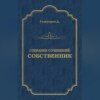Kitobni o'qish: «Plays : Fifth Series»
A FAMILY MAN
From the 5th Series Plays
By John Galsworthy
CHARACTERS
JOHN BUILDER……………. of the firm of Builder & Builder
JULIA………………….. His Wife
ATHENE…………………. His elder Daughter
MAUD…………………… His younger Daughter
RALPH BUILDER…………… His Brother, and Partner
GUY HERRINGHAME…………. A Flying Man
ANNIE………………….. A Young Person in Blue
CAMILLE………………… Mrs Builder's French Maid
TOPPING………………… Builder's Manservant
THE MAYOR………………. Of Breconridge
HARRIS…………………. His Secretary
FRANCIS CHANTREY………… J.P.
MOON…………………… A Constable
MARTIN…………………. A Police Sergeant
A JOURNALIST……………. From The Comet
THE FIGURE OF A POACHER
THE VOICES AND FACES OF SMALL BOYS
The action passes in the town of Breconridge, the Midlands.
ACT I. SCENE I. BUILDER'S Study. After breakfast. SCENE II. A Studio.
ACT II. BUILDER'S Study. Lunchtime.
ACT III. SCENE I. THE MAYOR'S Study. 10am the following day. SCENE II. BUILDER'S Study. The same. Noon. SCENE III. BUILDER'S Study. The same. Evening.
ACT I
SCENE I
The study of JOHN BUILDER in the provincial town of Breconridge. A panelled room wherein nothing is ever studied, except perhaps BUILDER'S face in the mirror over the fireplace. It is, however, comfortable, and has large leather chairs and a writing table in the centre, on which is a typewriter, and many papers. At the back is a large window with French outside shutters, overlooking the street, for the house is an old one, built in an age when the homes of doctors, lawyers and so forth were part of a provincial town, and not yet suburban. There are two or three fine old prints on the walls, Right and Left; and a fine, old fireplace, Left, with a fender on which one can sit. A door, Left back, leads into the dining-room, and a door, Right forward, into the hall.
JOHN BUILDER is sitting in his after-breakfast chair before the fire with The Times in his hands. He has breakfasted well, and is in that condition of first-pipe serenity in which the affairs of the nation seem almost bearable. He is a tallish, square, personable man of forty-seven, with a well-coloured, jowly, fullish face, marked under the eyes, which have very small pupils and a good deal of light in them. His bearing has force and importance, as of a man accustomed to rising and ownerships, sure in his opinions, and not lacking in geniality when things go his way. Essentially a Midlander. His wife, a woman of forty-one, of ivory tint, with a thin, trim figure and a face so strangely composed as to be almost like a mask (essentially from Jersey) is putting a nib into a pen-holder, and filling an inkpot at the writing-table.
As the curtain rises CAMILLE enters with a rather broken-down cardboard box containing flowers. She is a young woman with a good figure, a pale face, the warm brown eyes and complete poise of a Frenchwoman. She takes the box to MRS BUILDER.
MRS BUILDER. The blue vase, please, Camille.
CAMILLE fetches a vase. MRS BUILDER puts the flowers into the vase. CAMILLE gathers up the debris; and with a glance at BUILDER goes out.
BUILDER. Glorious October! I ought to have a damned good day's shooting with Chantrey tomorrow.
MRS BUILDER. [Arranging the flowers] Aren't you going to the office this morning?
BUILDER. Well, no, I was going to take a couple of days off. If you feel at the top of your form, take a rest—then you go on feeling at the top. [He looks at her, as if calculating] What do you say to looking up Athene?
MRS BUILDER. [Palpably astonished] Athene? But you said you'd done with her?
BUILDER. [Smiling] Six weeks ago; but, dash it, one can't have done with one's own daughter. That's the weakness of an Englishman; he can't keep up his resentments. In a town like this it doesn't do to have her living by herself. One of these days it'll get out we've had a row. That wouldn't do me any good.
MRS BUILDER. I see.
BUILDER. Besides, I miss her. Maud's so self-absorbed. It makes a big hole in the family, Julia. You've got her address, haven't you?
MRS BUILDER. Yes. [Very still] But do you think it's dignified, John?
BUILDER. [Genially] Oh, hang dignity! I rather pride myself on knowing when to stand on my dignity and when to sit on it. If she's still crazy about Art, she can live at home, and go out to study.
MRS BUILDER. Her craze was for liberty.
BUILDER. A few weeks' discomfort soon cures that. She can't live on her pittance. She'll have found that out by now. Get your things on and come with me at twelve o'clock.
MRS BUILDER. I think you'll regret it. She'll refuse.
BUILDER. Not if I'm nice to her. A child could play with me to-day. Shall I tell you a secret, Julia?
MRS BUILDER. It would be pleasant for a change.
BUILDER. The Mayor's coming round at eleven, and I know perfectly well what he's coming for.
MRS BUILDER. Well?
BUILDER. I'm to be nominated for Mayor next month. Harris tipped me the wink at the last Council meeting. Not so bad at forty-seven—h'm? I can make a thundering good Mayor. I can do things for this town that nobody else can.
MRS BUILDER. Now I understand about Athene.
BUILDER. [Good-humouredly] Well, it's partly that. But [more seriously] it's more the feeling I get that I'm not doing my duty by her. Goodness knows whom she may be picking up with! Artists are a loose lot. And young people in these days are the limit. I quite believe in moving with the times, but one's either born a Conservative, or one isn't. So you be ready at twelve, see. By the way, that French maid of yours, Julia—
MRS BUILDER. What about her?
BUILDER. Is she—er—is she all right? We don't want any trouble with Topping.
MRS BUILDER. There will be none with—Topping.
[She opens the door Left.]
BUILDER. I don't know; she strikes me as—very French.
MRS BUILDER smiles and passes out.
BUILDER fills his second pipe. He is just taking up the paper again when the door from the hall is opened, and the manservant TOPPING, dried, dark, sub-humorous, in a black cut-away, announces:
TOPPING. The Mayor, Sir, and Mr Harris!
THE MAYOR of Breconridge enters, He is clean-shaven, red-faced, light-eyed, about sixty, shrewd, poll-parroty, naturally jovial, dressed with the indefinable wrongness of a burgher; he is followed by his Secretary HARRIS, a man all eyes and cleverness. TOPPING retires.
BUILDER. [Rising] Hallo, Mayor! What brings you so early? Glad to see you. Morning, Harris!
MAYOR. Morning, Builder, morning.
HARRIS. Good-morning, Sir.
BUILDER. Sit down-sit down! Have a cigar!
The MAYOR takes a cigar HARRIS a cigarette from his own case.
BUILDER. Well, Mayor, what's gone wrong with the works? He and HARRIS exchange a look.
MAYOR. [With his first puff] After you left the Council the other day, Builder, we came to a decision.
BUILDER. Deuce you did! Shall I agree with it?
MAYOR. We shall see. We want to nominate you for Mayor. You willin' to stand?
BUILDER. [Stolid] That requires consideration.
MAYOR. The only alternative is Chantrey; but he's a light weight, and rather too much County. What's your objection?
BUILDER. It's a bit unexpected, Mayor. [Looks at HARRIS] Am I the right man? Following you, you know. I'm shooting with Chantrey to-morrow. What does he feel about it?
MAYOR. What do you say, 'Arris?
HARRIS. Mr Chantrey's a public school and University man, Sir; he's not what I call ambitious.
BUILDER. Nor am I, Harris.
HARRIS. No, sir; of course you've a high sense of duty. Mr Chantrey's rather dilettante.
MAYOR. We want a solid man.
BUILDER. I'm very busy, you know, Mayor.
MAYOR. But you've got all the qualifications—big business, family man, live in the town, church-goer, experience on the Council and the Bench. Better say "yes," Builder.
BUILDER. It's a lot of extra work. I don't take things up lightly.
MAYOR. Dangerous times, these. Authority questioned all over the place. We want a man that feels his responsibilities, and we think we've got him in you.
BUILDER. Very good of you, Mayor. I don't know, I'm sure. I must think of the good of the town.
HARRIS. I shouldn't worry about that, sir.
MAYOR. The name John Builder carries weight. You're looked up to as a man who can manage his own affairs. Madam and the young ladies well?
BUILDER. First-rate.
MAYOR. [Rises] That's right. Well, if you'd like to talk it over with Chantrey to-morrow. With all this extremism, we want a man of principle and common sense.
HARRIS. We want a man that'll grasp the nettle, sir—and that's you.
BUILDER. Hm! I've got a temper, you know.
MAYOR. [Chuckling] We do—we do! You'll say "yes," I see. No false modesty! Come along, 'Arris, we must go.
BUILDER. Well, Mayor, I'll think it over, and let you have an answer. You know my faults, and you know my qualities, such as they are. I'm just a plain Englishman.
MAYOR. We don't want anything better than that. I always say the great point about an Englishman is that he's got bottom; you may knock him off his pins, but you find him on 'em again before you can say "Jack Robinson." He may have his moments of aberration, but he's a sticker. Morning, Builder, morning! Hope you'll say "yes."
He shakes hands and goes out, followed by HARRIS.
When the door is dosed BUILDER stands a moment quite still with a gratified smile on his face; then turns and scrutinises himself in the glass over the hearth. While he is doing so the door from the dining-room is opened quietly and CAMILLE comes in. BUILDER, suddenly seeing her reflected in the mirror, turns.
BUILDER. What is it, Camille?
CAMILLE. Madame send me for a letter she say you have, Monsieur, from the dyer and cleaner, with a bill.
BUILDER. [Feeling in his pockets] Yes—no. It's on the table.
CAMILLE goes to the writing-table and looks. That blue thing.
CAMILLE. [Taking it up] Non, Monsieur, this is from the gas.
BUILDER. Oh! Ah!
[He moves up to the table and turns over papers. CAMILLE stands motionless close by with her eyes fixed on him.]
Here it is!
[He looks up, sees her looking at him, drops his own gaze, and hands her the letter. Their hands touch. Putting his hands in his pockets]
What made you come to England?
CAMILLE. [Demure] It is better pay, Monsieur, and [With a smile] the English are so amiable.
BUILDER. Deuce they are! They haven't got that reputation.
CAMILLE. Oh! I admire Englishmen. They are so strong and kind.
BUILDER. [Bluffly flattered] H'm! We've no manners.
CAMILLE. The Frenchman is more polite, but not in the 'eart.
BUILDER. Yes. I suppose we're pretty sound at heart.
CAMILLE. And the Englishman have his life in the family—the Frenchman have his life outside.
BUILDER. [With discomfort] H'm!
CAMILLE. [With a look] Too mooch in the family—like a rabbit in a 'utch.
BUILDER. Oh! So that's your view of us! [His eyes rest on her, attracted but resentful].
CAMILLE. Pardon, Monsieur, my tongue run away with me.
BUILDER. [Half conscious of being led on] Are you from Paris?
CAMILLE. [Clasping her hands] Yes. What a town for pleasure—Paris!
BUILDER. I suppose so. Loose place, Paris.
CAMILLE. Loose? What is that, Monsieur?
BUILDER. The opposite of strict.
CAMILLE. Strict! Oh! certainly we like life, we other French. It is not like England. I take this to Madame, Monsieur. [She turns as if to go] Excuse me.
BUILDER. I thought you Frenchwomen all married young.
CAMILLE. I 'ave been married; my 'usband did die—en Afrique.
BUILDER. You wear no ring.
CAMILLE. [Smiling] I prefare to be mademoiselle, Monsieur.
BUILDER. [Dubiously] Well, it's all the same to us. [He takes a letter up from the table] You might take this to Mrs Builder too. [Again their fingers touch, and there is a suspicion of encounter between their eyes.]
CAMILLE goes out.
BUILDER. [Turning to his chair] Don't know about that woman—she's a tantalizer.
He compresses his lips, and is settling back into his chair, when the door from the hall is opened and his daughter MAUD comes in; a pretty girl, rather pale, with fine eyes. Though her face has a determined cast her manner at this moment is by no means decisive. She has a letter in her hand, and advances rather as if she were stalking her father, who, after a "Hallo, Maud!" has begun to read his paper.
MAUD. [Getting as far as the table] Father.
BUILDER. [Not lowering the paper] Well? I know that tone. What do you want—money?
MAUD. I always want money, of course; but—but—
BUILDER. [Pulling out a note-abstractedly] Here's five pounds for you.
MAUD, advancing, takes it, then seems to find what she has come for more on her chest than ever.
BUILDER. [Unconscious] Will you take a letter for me?
MAUD sits down Left of table and prepares to take down the letter.
[Dictating] "Dear Mr Mayor,—Referring to your call this morning, I have —er—given the matter very careful consideration, and though somewhat reluctant—"
MAUD. Are you really reluctant, father?
BUILDER. Go on—"To assume greater responsibilities, I feel it my duty to come forward in accordance with your wish. The—er—honour is one of which I hardly feel myself worthy, but you may rest assured—"
MAUD. Worthy. But you do, you know.
BUILDER. Look here! Are you trying to get a rise out of me?—because you won't succeed this morning.
MAUD. I thought you were trying to get one out of me.
BUILDER. Well, how would you express it?
MAUD. "I know I'm the best man for the place, and so do you—"
BUILDER. The disrespect of you young people is something extraordinary. And that reminds me where do you go every evening now after tea?
MAUD. I—I don't know.
BUILDER. Come now, that won't do—you're never in the house from six to seven.
MAUD. Well! It has to do with my education.
BUILDER. Why, you finished that two years ago!
MAUD. Well, call it a hobby, if you like, then, father.
She takes up the letter she brought in and seems on the point of broaching it.
BUILDER. Hobby? Well, what is it?
MAUD. I don't want to irritate you, father.
BUILDER. You can't irritate me more than by having secrets. See what that led to in your sister's case. And, by the way, I'm going to put an end to that this morning. You'll be glad to have her back, won't you?
MAUD. [Startled] What!
BUILDER. Your mother and I are going round to Athene at twelve o'clock. I shall make it up with her. She must come back here.
MAUD. [Aghast, but hiding it] Oh! It's—it's no good, father. She won't.
BUILDER. We shall see that. I've quite got over my tantrum, and I expect she has.
MAUD. [Earnestly] Father! I do really assure you she won't; it's only wasting your time, and making you eat humble pie.
BUILDER. Well, I can eat a good deal this morning. It's all nonsense! A family's a family.
MAUD. [More and more disturbed, but hiding it] Father, if I were you, I wouldn't-really! It's not-dignified.
BUILDER. You can leave me to judge of that. It's not dignified for the Mayor of this town to have an unmarried daughter as young as Athene living by herself away from home. This idea that she's on a visit won't wash any longer. Now finish that letter—"worthy, but you may rest assured that I shall do my best to sustain the—er—dignity of the office." [MAUD types desperately.] Got that? "And—er—preserve the tradition so worthily—" No— "so staunchly"—er—er—
MAUD. Upheld.
BUILDER. Ah! "—upheld by yourself.—Faithfully yours."
MAUD. [Finishing] Father, you thought Athene went off in a huff. It wasn't that a bit. She always meant to go. She just got you into a rage to make it easier. She hated living at home.
BUILDER. Nonsense! Why on earth should she?
MAUD. Well, she did! And so do— [Checking herself] And so you see it'll only make you ridiculous to go.
BUILDER. [Rises] Now what's behind this, Maud?
MAUD. Behind—Oh! nothing!
BUILDER. The fact is, you girls have been spoiled, and you enjoy twisting my tail; but you can't make me roar this morning. I'm too pleased with things. You'll see, it'll be all right with Athene.
MAUD. [Very suddenly] Father!
BUILDER. [Grimly humorous] Well! Get it off your chest. What's that letter about?
MAUD. [Failing again and crumpling the letter behind her back] Oh! nothing.
BUILDER. Everything's nothing this morning. Do you know what sort of people Athene associates with now—I suppose you see her?
MAUD. Sometimes.
BUILDER. Well?
MAUD. Nobody much. There isn't anybody here to associate with. It's all hopelessly behind the times.
BUILDER. Oh! you think so! That's the inflammatory fiction you pick up. I tell you what, young woman—the sooner you and your sister get rid of your silly notions about not living at home, and making your own way, the sooner you'll both get married and make it. Men don't like the new spirit in women—they may say they do, but they don't.
MAUD. You don't, father, I know.
BUILDER. Well, I'm very ordinary. If you keep your eyes open, you'll soon see that.
MAUD. Men don't like freedom for anybody but themselves.
BUILDER. That's not the way to put it. [Tapping out his pipe] Women in your class have never had to face realities.
MAUD. No, but we want to.
BUILDER. [Good-humouredly] Well, I'll bet you what you like, Athene's dose of reality will have cured her.
MAUD. And I'll bet you—No, I won't!
BUILDER. You'd better not. Athene will come home, and only too glad to do it. Ring for Topping and order the car at twelve.
As he opens the door to pass out, MAUD starts forward, but checks herself.
MAUD. [Looking at her watch] Half-past eleven! Good heavens!
She goes to the bell and rings. Then goes back to the table, and writes an address on a bit of paper.
TOPPING enters Right.
TOPPING. Did you ring, Miss?
MAUD. [With the paper] Yes. Look here, Topping! Can you manage— on your bicycle—now at once? I want to send a message to Miss Athene —awfully important. It's just this: "Look out! Father is coming." [Holding out the paper] Here's her address. You must get there and away again by twelve. Father and mother want the car then to go there. Order it before you go. It won't take you twenty minutes on your bicycle. It's down by the river near the ferry. But you mustn't be seen by them either going or coming.
TOPPING. If I should fall into their hands, Miss, shall I eat the despatch?
MAUD. Rather! You're a brick, Topping. Hurry up!
TOPPING. Nothing more precise, Miss?
MAUD. M—m—No.
TOPPING. Very good, Miss Maud. [Conning the address] "Briary Studio, River Road. Look out! Father is coming!" I'll go out the back way. Any answer?
MAUD. No.
TOPPING nods his head and goes out.
MAUD. [To herself] Well, it's all I can do.
She stands, considering, as the CURTAIN falls.
SCENE II
The Studio, to which are attached living rooms, might be rented at eighty pounds a year—some painting and gear indeed, but an air of life rather than of work. Things strewn about. Bare walls, a sloping skylight, no windows; no fireplace visible; a bedroom door, stage Right; a kitchen door, stage Left. A door, Centre back, into the street. The door knocker is going.
From the kitchen door, Left, comes the very young person, ANNIE, in blotting-paper blue linen, with a white Dutch cap. She is pretty, her cheeks rosy, and her forehead puckered. She opens the street door. Standing outside is TOPPING. He steps in a pace or two.
TOPPING. Miss Builder live here?
ANNIE. Oh! no, sir; Mrs Herringhame.
TOPPING. Mrs Herringhame? Oh! young lady with dark hair and large expressive eyes?
ANNIE. Oh! yes, sir.
TOPPING. With an "A. B." on her linen? [Moves to table].
ANNIE. Yes, sir.
TOPPING. And "Athene Builder" on her drawings?
ANNIE. [Looking at one] Yes, sir.
TOPPING. Let's see. [He examines the drawing] Mrs Herringhame, you said?
ANNIE. Oh! yes, Sir.
TOPPING. Wot oh!
ANNIE. Did you want anything, sir?
TOPPING. Drop the "sir," my dear; I'm the Builders' man. Mr Herringhame in?
ANNIE. Oh! no, Sir.
TOPPING. Take a message. I can't wait. From Miss Maud Builder. "Look out! Father is coming." Now, whichever of 'em comes in first—that's the message, and don't you forget it.
ANNIE. Oh! no, Sir.
TOPPING. So they're married?
ANNIE. Oh! I don't know, sir.
TOPPING. I see. Well, it ain't known to Builder, J.P., either. That's why there's a message. See?
ANNIE. Oh! yes, Sir.
TOPPING. Keep your head. I must hop it. From Miss Maud Builder. "Look out! Father is coming."
He nods, turns and goes, pulling the door to behind him. ANNIE stands "baff" for a moment.
ANNIE. Ah!
She goes across to the bedroom on the Right, and soon returns with a suit of pyjamas, a toothbrush, a pair of slippers and a case of razors, which she puts on the table, and disappears into the kitchen. She reappears with a bread pan, which she deposits in the centre of the room; then crosses again to the bedroom, and once more reappears with a clothes brush, two hair brushes, and a Norfolk jacket. As she stuffs all these into the bread pan and bears it back into the kitchen, there is the sound of a car driving up and stopping. ANNIE reappears at the kitchen door just as the knocker sounds.
ANNIE. Vexin' and provokin'! [Knocker again. She opens the door] Oh!
MR and MRS BUILDER enter.
BUILDER. Mr and Mrs Builder. My daughter in?
ANNIE. [Confounded] Oh! Sir, no, sir.
BUILDER. My good girl, not "Oh! Sir, no, sir." Simply: No, Sir. See?
ANNIE. Oh! Sir, yes, Sir.
BUILDER. Where is she?
ANNIE. Oh! Sir, I don't know, Sir.
BUILDER. [Fixing her as though he suspected her of banter] Will she be back soon?
ANNIE. No, Sir.
BUILDER. How do you know?
ANNIE. I d—don't, sir.
BUILDER. They why do you say so? [About to mutter "She's an idiot!" he looks at her blushing face and panting figure, pats her on the shoulder and says] Never mind; don't be nervous.
ANNIE. Oh! yes, sir. Is that all, please, sir?
MRS BUILDER. [With a side look at her husband and a faint smile] Yes; you can go.
ANNIE. Thank you, ma'am.
She turns and hurries out into the kitchen, Left. BUILDER gazes after her, and MRS BUILDER gazes at BUILDER with her faint smile.
BUILDER. [After the girl is gone] Quaint and Dutch—pretty little figure! [Staring round] H'm! Extraordinary girls are! Fancy Athene preferring this to home. What?
MRS BUILDER. I didn't say anything.
BUILDER. [Placing a chair for his wife, and sitting down himself] Well, we must wait, I suppose. Confound that Nixon legacy! If Athene hadn't had that potty little legacy left her, she couldn't have done this. Well, I daresay it's all spent by now. I made a mistake to lose my temper with her.
MRS BUILDER. Isn't it always a mistake to lose one's temper?
BUILDER. That's very nice and placid; sort of thing you women who live sheltered lives can say. I often wonder if you women realise the strain on a business man.
MRS BUILDER. [In her softly ironical voice] It seems a shame to add the strain of family life.
BUILDER. You've always been so passive. When I want a thing, I've got to have it.
MRS BUILDER. I've noticed that.
BUILDER. [With a short laugh] Odd if you hadn't, in twenty-three years. [Touching a canvas standing against the chair with his toe] Art! Just a pretext. We shall be having Maud wanting to cut loose next. She's very restive. Still, I oughtn't to have had that scene with Athene. I ought to have put quiet pressure.
MRS BUILDER Smiles.
BUILDER. What are you smiling at?
MRS BUILDER shrugs her shoulders.
Look at this—Cigarettes! [He examines the brand on the box] Strong, very—and not good! [He opens the door] Kitchen! [He shuts it, crosses, and opens the door, Right] Bedroom!
MRS BUILDER. [To his disappearing form] Do you think you ought, John?
He has disappeared, and she ends with an expressive movement of her hands, a long sigh, and a closing of her eyes. BUILDER'S peremptory voice is heard: "Julia!"
What now?
She follows into the bedroom. The maid ANNIE puts her head out of the kitchen door; she comes out a step as if to fly; then, at BUILDER'S voice, shrinks back into the kitchen.
BUILDER, reappearing with a razor strop in one hand and a shaving-brush in the other, is followed by MRS BUILDER.
BUILDER. Explain these! My God! Where's that girl?
MRS BUILDER. John! Don't! [Getting between him and the kitchen door] It's not dignified.
BUILDER. I don't care a damn.
MRS BUILDER. John, you mustn't. Athene has the tiny beginning of a moustache, you know.
BUILDER. What! I shall stay and clear this up if I have to wait a week. Men who let their daughters—! This age is the limit. [He makes a vicious movement with the strop, as though laying it across someone's back.]
MRS BUILDER. She would never stand that. Even wives object, nowadays.
BUILDER. [Grimly] The war's upset everything. Women are utterly out of hand. Why the deuce doesn't she come?
MRS BUILDER. Suppose you leave me here to see her.
BUILDER. [Ominously] This is my job.
MRS BUILDER. I think it's more mine.
BUILDER. Don't stand there opposing everything I say! I'll go and have another look—[He is going towards the bedroom when the sound of a latchkey in the outer door arrests him. He puts the strop and brush behind his back, and adds in a low voice] Here she is!
MRS BUILDER has approached him, and they have both turned towards the opening door. GUY HERRINGHAME comes in. They are a little out of his line of sight, and he has shut the door before he sees them. When he does, his mouth falls open, and his hand on to the knob of the door. He is a comely young man in Harris tweeds. Moreover, he is smoking. He would speak if he could, but his surprise is too excessive. BUILDER. Well, sir?
GUY. [Recovering a little] I was about to say the same to you, sir.
BUILDER. [Very red from repression] These rooms are not yours, are they?
GUY. Nor yours, sir?
BUILDER. May I ask if you know whose they are?
GUY. My sister's.
BUILDER. Your—you—!
MRS BUILDER. John!
BUILDER. Will you kindly tell me why your sister signs her drawings by the name of my daughter, Athene Builder—and has a photograph of my wife hanging there?
The YOUNG MAN looks at MRS BUILDER and winces, but recovers himself.
GUY. [Boldly] As a matter of fact this is my sister's studio; she's in France—and has a friend staying here.
BUILDER. Oh! And you have a key?
GUY. My sister's.
BUILDER. Does your sister shave?
GUY. I—I don't think so.
BUILDER. No. Then perhaps you'll tell me what these mean? [He takes out the strop and shaving stick].
GUY. Oh! Ah! Those things?
BUILDER. Yes. Now then?
GUY. [Addressing MRS BUILDER] Need we go into this in your presence, ma'am? It seems rather delicate.
BUILDER. What explanation have you got?
GUY. Well, you see—
BUILDER. No lies; out with it!
GUY. [With decision] I prefer to say nothing.
BUILDER. What's your name?
GUY. Guy Herringhame.
BUILDER. Do you live here?
Guy makes no sign.
MRS BUILDER. [To Guy] I think you had better go.
BUILDER. Julia, will you leave me to manage this?
MRS BUILDER. [To Guy] When do you expect my daughter in?
GUY. Now—directly.
MRS BUILDER. [Quietly] Are you married to her?
GUY. Yes. That is—no—o; not altogether, I mean.
BUILDER. What's that? Say that again!
GUY. [Folding his arms] I'm not going to say another word.
BUILDER. I am.
MRS BUILDER. John—please!
BUILDER. Don't put your oar in! I've had wonderful patience so far. [He puts his boot through a drawing] Art! This is what comes of it! Are you an artist?
GUY. No; a flying man. The truth is—
BUILDER. I don't want to hear you speak the truth. I'll wait for my daughter.
GUY. If you do, I hope you'll be so very good as to be gentle. If you get angry I might too, and that would be awfully ugly.
BUILDER. Well, I'm damned!
GUY. I quite understand that, sir. But, as a man of the world, I hope you'll take a pull before she comes, if you mean to stay.
BUILDER. If we mean to stay! That's good!
GUY. Will you have a cigarette?
BUILDER. I—I can't express—
GUY. [Soothingly] Don't try, sir. [He jerks up his chin, listening] I think that's her. [Goes to the door] Yes. Now, please! [He opens the door] Your father and mother, Athene.
ATHENE enters. She is flushed and graceful. Twenty-two, with a short upper lip, a straight nose, dark hair, and glowing eyes. She wears bright colours, and has a slow, musical voice, with a slight lisp.
ATHENE. Oh! How are you, mother dear? This is rather a surprise. Father always keeps his word, so I certainly didn't expect him. [She looks steadfastly at BUILDER, but does not approach].
BUILDER. [Controlling himself with an effort] Now, Athene, what's this?
ATHENE. What's what?
BUILDER. [The strop held out] Are you married to this—this—?
ATHENE. [Quietly] To all intents and purposes.
BUILDER. In law?
ATHENE. No.
BUILDER. My God! You—you—!
ATHENE. Father, don't call names, please.
BUILDER. Why aren't you married to him?
ATHENE. Do you want a lot of reasons, or the real one?
BUILDER. This is maddening! [Goes up stage].
ATHENE. Mother dear, will you go into the other room with Guy? [She points to the door Right].
BUILDER. Why?
ATHENE. Because I would rather she didn't hear the reason.
GUY. [To ATHENE, sotto voce] He's not safe.
ATHENE. Oh! yes; go on.
Guy follows MRS BUILDER, and after hesitation at the door they go out into the bedroom.
BUILDER. Now then!
ATHENE. Well, father, if you want to know the real reason, it's—you.
BUILDER. What on earth do you mean?
ATHENE. Guy wants to marry me. In fact, we—But I had such a stunner of marriage from watching you at home, that I—
BUILDER. Don't be impudent! My patience is at breaking-point, I warn you.
ATHENE. I'm perfectly serious, Father. I tell you, we meant to marry, but so far I haven't been able to bring myself to it. You never noticed how we children have watched you.
BUILDER. Me?
ATHENE. Yes. You and mother, and other things; all sorts of things—
BUILDER. [Taking out a handkerchief and wiping his brow] I really think you're mad.
ATHENE. I'm sure you must, dear.
BUILDER. Don't "dear" me! What have you noticed? D'you mean I'm not a good husband and father?
ATHENE. Look at mother. I suppose you can't, now; you're too used to her.
BUILDER. Of course I'm used to her. What else is marrying for?
ATHENE. That; and the production of such as me. And it isn't good enough, father. You shouldn't have set us such a perfect example.
BUILDER. You're talking the most arrant nonsense I ever heard. [He lifts his hands] I've a good mind to shake it out of you.
ATHENE. Shall I call Guy?
He drops his hands.
Confess that being a good husband and father has tried you terribly. It has us, you know.




















